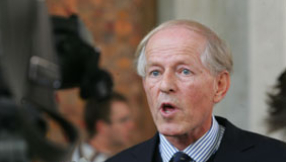
I've been wanting to write this for a while. But I couldn't find the right words, and I feared the trolls. But last week came the final straw.
A colleague, Dave, tweeted what he had just experienced: "Ok just had my first bit of abuse from total stranger on garage forecourt about how Boris is going to deal with "all you *@#* disabled scroungers"!"
I will admit to being incredibly angry. I know Dave has had other instances – this was his first in this situation, but he's not the only person I know to go through this. As a result of his stark honesty on Twitter, people started to talk about what they have been facing.
I know parents who have had people say they should have killed their child at birth. The abuse being levelled at disabled people in this country is beyond heartbreaking.
Following on from Dave's Tweet came a reply from another friend and colleague, Mark, that summed up part of what I wanted to write.
"This is a hate crime and it's happening all the time. Imagine the outcry if the word 'disabled' had been 'black' or 'gay' instead. There's no difference, it's all discrimination, it's all abuse, disabled people should be respected by the wider community, and our politicians, too," he wrote.
As Mark says, change the word 'disability' to a couple of the other protected characteristics from the discrimination laws, and there would most likely be an outcry. Why not for disability?
But there's not just an issue with hate crime.
The Disability Discrimination Act (DDA) was repealed and replaced by the Equality Act 2010 - except in Northern Ireland.
To quote the Act's website: "The Equality Act came into force from October 2010 providing a modern, single legal framework with clear, streamlined law to more effectively tackle disadvantage and discrimination."
The Equalities Act has nine protected characteristics - age, disability, gender reassignment, race, religion or belief, sex, sexual orientation, marriage and civil partnerships, and pregnancy and maternity. Even if we don't agree with some from a religious point of view, all those covered in the Act deserve that protection.
But, in it's outworking, it does feel as though 'equalities' is a bit of a misnomer. Disability appears to be becoming a minority within an Act designed to protect all those discriminated against by way of their particular characteristic.
A fellow blogger who is disabled and identifies as queer says she has more rights as a queer than she does as a disabled person. Why is that? The law says this shouldn't happen.
If it's like that in society as a whole, what is it like in the Church?
This is how it feels: the Church is giving a disproportionate amount of time to just two characteristics of the Equalities Act, and virtually ignoring some of the others such as race, age and disability, to the point that many with disabilities feel overlooked and discouraged, resulting in many leaving.
For evangelism, I'll just give you the figures (from the Lausanne Movement): The largest unreached people group in the world is people with disabilities at 94% unreached.
And when diversity in general is discussed in a faith context, disability is the one that is regularly missed out, even in policies that refer to diversity.
I'm fed up with being told I complain too much about access issues. I'm also cross when I overhear conversations that say disabled people need to be grateful for what they get, even when what we get is not up to standard and prevents us from serving and worshipping, or even attending.
I must confess that I also get irritated with language that assumes everyone can hear, see and stand, and comes across as belittling the worship and prayers we bring. As I write this I remember an example where a bishop stopped his prayer and said, "Everyone, stand up NOW and show God you are really serious about this prayer!" I saw many people, who were unable to stand, in tears about it.
I'm angry when churches see expense and inconvenience before they see the life, joy and gifts that disabled people can bring.
And I know I will get at least one complaint by direct messaging (from someone who isn't disabled) because I put 'disability' first and not the person....even though the majority of those with disabilities prefer it the way I have written it.
I want children with additional needs and disabilities to see church as a safe place to come, rather than being told to leave, as many are every week.
In fact, I'm so fed up with all that I've written about here, I'm actually going to type a quote that I vowed I would never, ever put in an article: "We are all only 20 seconds away from being disabled." I wouldn't wish disability on anyone, but I think this occasion is worthy of that phrase.
Yes, I've had the comments on the street, I've even had more sexual harassment from total strangers since being disabled. People in a church context have no idea what many disabled people deal with on a daily basis – but I'd love them to grasp the significance and stand with us.
Dave has a huge online community of people that gathered around him. I too have a wonderful support network. But many don't.
I wrote about some of this only a couple of weeks ago, asking the Church to yell on our behalf. I'm now asking you to keep yelling but also not to forget us in any area of the church community, and bear in mind the abuse many of us face on a daily basis.
Kay Morgan-Gurr is Chair of Children Matter and Co-Founder of the Additional Needs Alliance, part of the Evangelical Alliance Council. For more, www.kaymorgangurr.com and on Twitter @kaymorgan_gurr













